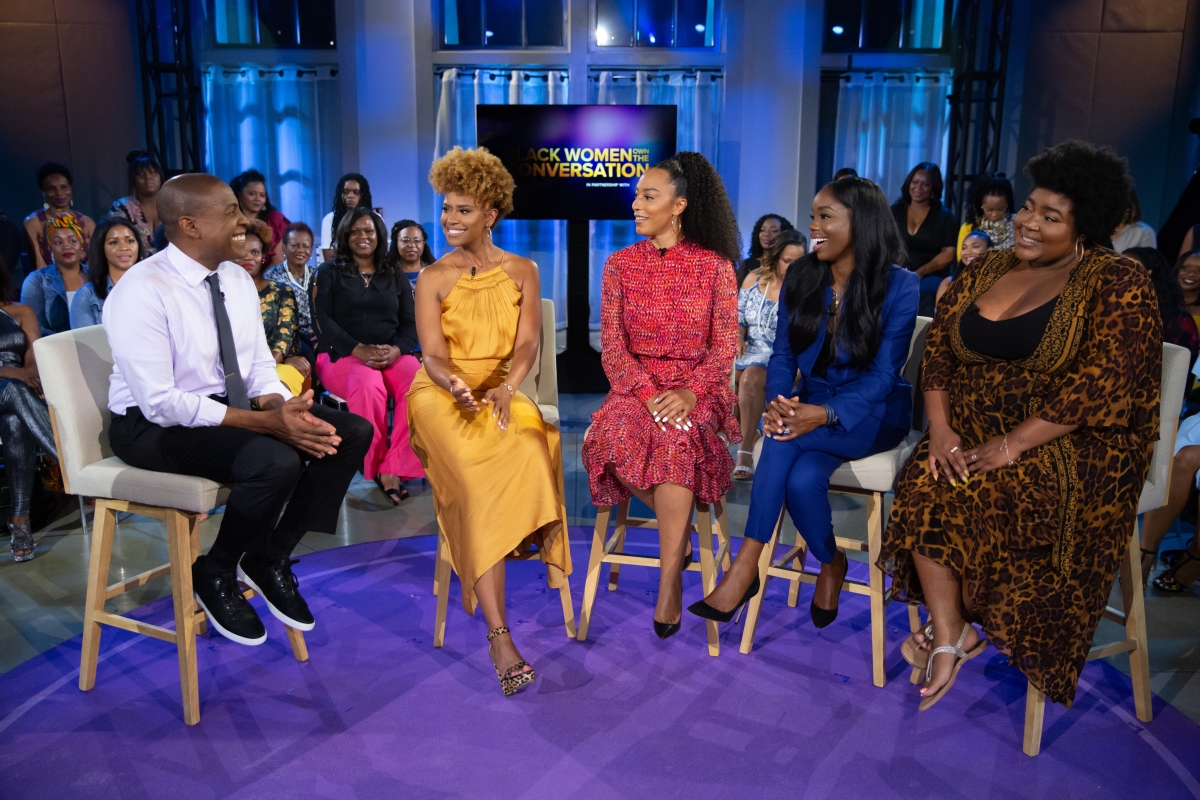“It’s easy to hand down trauma.”
These were the words spoken by California’s Surgeon General, Dr. Nadine Burke Harris, on the second episode of “OWN Spotlight: Black Women OWN the Conversation,” a new series on OWN: Oprah Winfrey Network that features roundtable discussions on topics relevant to African American women. This episode’s conversation was dedicated to the topic of motherhood.
While the phrase “hand down” usually evokes a positive image like an inheritance or an endowment, what Dr. Burke Harris was referring to is the transmission of “intergenerational trauma” — the theory that trauma experienced first-hand by one generation is passed on to children and grandchildren through learned behavior (or possibly even more directly through a parent’s DNA) — and its impact on motherhood.
During the discussion, one audience member raised her hand to speak to this experience. Born after her father had passed away and while her mother was incarcerated, she expressed how the experience of not being mothered left her feeling ill-equipped to mother her own child and concerned about the impact that might have on her own children.
“I never experienced being mothered,” she shared. “I was not a mother… I was a 16-year-old who gave birth.”
At First 5 LA where I am a program officer in the Health Systems Department, we often discuss the impact of intergenerational trauma such as the experience described above from a systemic point of view. We understand its cyclical nature, especially when it comes to complex social issues such as poverty, addiction, homelessness and incarceration. Many studies have shown that a parent’s experience with one or more of these scenarios increases the likelihood that a child will grow up to experience similar or comparable challenges.
When it comes to motherhood specifically, unresolved trauma — such as a mother experiencing prior abuse or neglect — can also manifest in more immediate ways, such as impacting a mother’s ability to sensitively respond to her child. Studies have shown that this can affect the development of attachment and potentially contribute to the intergenerational transmission of trauma. This cyclical relationship can be damaging to both mother and child and can be a difficult cycle to break, especially when compounded by the aforementioned societal issues.
The possibility of breaking the cycle of intergenerational trauma is not without hope, however. An essential aspect of First 5 LA’s work is advocating for changes in systems and policies to address the reality that early childhood trauma affects not just one person’s life, but generations thereafter.
Relevant to this effort is the work led by our Health Systems team. By working to create trauma and resiliency-informed systems change (TRISC), we are helping providers and facilitators that work with families and kids to better respond to the impact of trauma, helping reduce its intergenerational repercussions. As L.A. County learns more about the effects of trauma and develops better, more responsive systems, trauma-informed approaches will be more fully integrated into policies, procedures and practices, and actively applied to prevent re-traumatization of the individual and generations thereafter.
Additionally, the importance of attachment, the caregiver-child bond and social emotional learning is echoed within our Family Supports Department. Welcome Baby, First 5 LA’s home visiting initiative, for example, has been shown to strengthen the caretaker-child bond by providing support for mothers and families during the stressful period of caring for a newborn, so that mothers — like the audience member who shared her story — can feel supported especially when circumstance prevents them from feeling that support otherwise.
Likewise, the connection between trauma and the experiences of child abuse and neglect further reinforces our commitment to partner with County agencies through the Office of Child Protection, whose emphasis on community-level adversities speaks to our work within Best Start communities.

“When you are nurtured by others, and when you nurture yourself, when we do that self-care,” Dr. Harris Burke subsequently explained, “that’s when we break the intergenerational cycle.”
An audience member raised her hand to add: “It’s easy to hand down trauma… but healing ourselves means that we raise healthy kids.”
While nurturing oneself is an important aspect of being a healthy caretaker, at First 5 LA, we also believe that raising healthy kids is a collective effort built on the commitment of not just healthy parents, but healthy families, communities, public institutions and service systems.
As a I reflect on this segment, I am reminded that all of us have a responsibility to nurture each other — whether that be through services and supports or on an individual or interpersonal level — as a way of addressing the challenging and painful social and environmental confinements that perpetuate re-traumatization in order to begin to truly heal communities, ourselves and thus, future generations.
For more information on OWN Spotlight: Black Women OWN the Conversation, visit http://www.oprah.com/own-blackwomenowntheconversation/first-look-motherhood.








